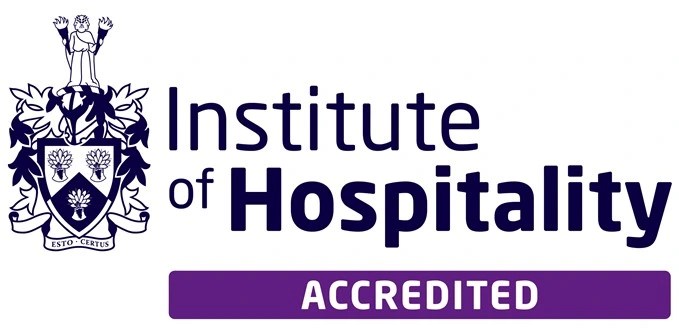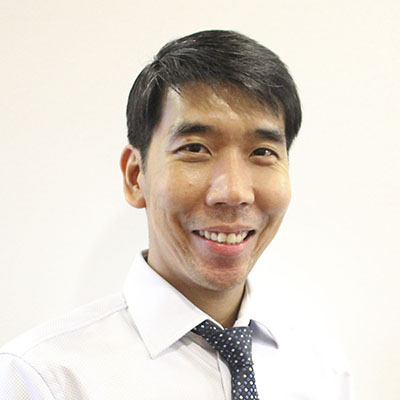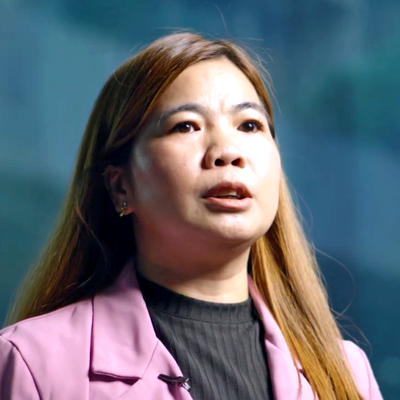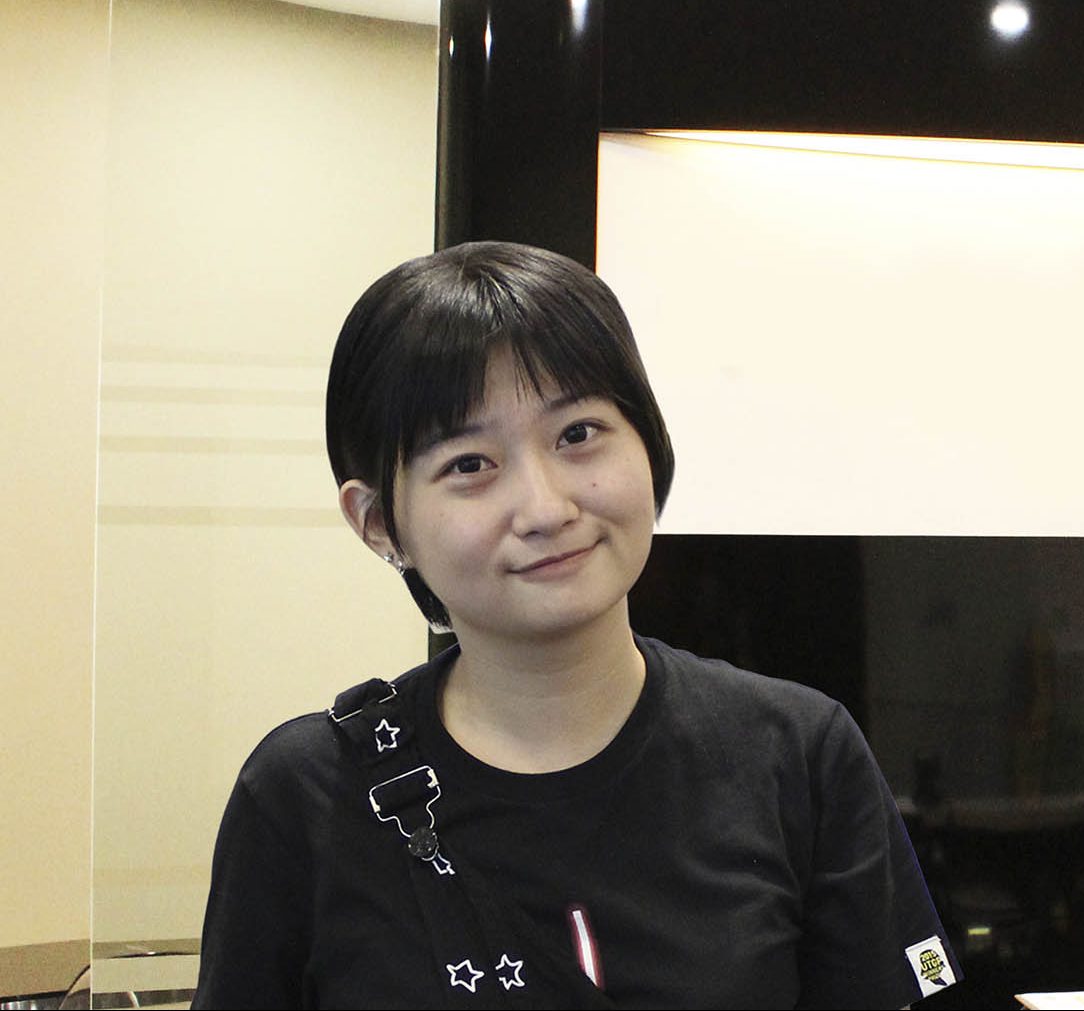
OVERVIEW
About This Programme
Higher Diploma in Hospitality and Tourism Management is developed by London School of Business and Finance (LSBF) to provide a progression route for students aiming for a higher qualification in the field of hospitality management.
Students have to attend a course of study and undergo on-the-Job Training of 6 months in a hospitality establishment in Singapore.
42% of the 2024 cohort earned distinctions
Unlock a UK degree pathway in just 16 months
Gain valuable experience with a 6-month industrial attachment
Learn from expert educators and industry practitioners
MODULES
Designed to explore beyond subject knowledge
By the end of the programme, graduates will be able to demonstrate the accounting and finance related knowledge, which will be further developed and integrated into broader business knowledge, skills and professional values and ethics.
Introduction to Hospitality and Tourism
The aim of this module is to provide students with an understanding of the nature of hospitality and hospitality products from both local and international perspectives. It will ensure students acquire a holistic understanding of the hospitality, including the travel and hospitality industry, including the impacts of hospitality on destination economies, communities and fragile environments. Students will be expected to take a critical perspective on the effects of hospitality on their own country, and how hospitality can have a strategic developmental function.
Housekeeping
The aim of Housekeeping module is to provide students with an overview of the range of functions within the facilities department of hotels. Summary of learning Outcomes. To succeed in this module, students must:
Describe the operational and supervisory aspects of running an accommodation operation to the requirements of an international client
Explain the basic principles and procedures used in Housekeeping
Explain the range of accommodation provided and the regular processes of cleaning and maintenance necessary to ensure the facilities and accommodation meets the customer requirements
Describe the measures which influence and affect the facilities department
Discuss environmental issues and how they are managed
Front Office Operations
This module introduces students to the systems and procedures required for Front Desk Office Operations. It emphasizes the importance of high standards in personal qualities and the provision of customer service. Students will develop knowledge and skills in reception procedures as well as understanding the key legislation that relates to reception procedures. They will also evaluate the suitability of different procedures for a range of hotel outlets.
Food and Beverage Operations
The aim of Food and Beverage Operations module is to provide students with an understanding of the operational and supervisory aspects of running a food and beverage operations for an international clientele in a range of establishments to encourage an appreciation of the origins of such systems and to understand the various factors involved in meeting customer needs. Students will gain an understanding of food and wine and its service in a variety of styles of restaurant and establishments and they will have sufficient knowledge to produce a detailed plan for specified food and beverage operations.
Food Sanitation, Safety and Health
This module makes an important contribution to the supervisory aspects of food hygiene and safety. Supervisors with food safety and health and safety responsibilities need to ensure that all staff operates in a safe, hygienic and efficient manner. The overall aims of this module are to ensure students are familiar with key aspects of current legislation, good practice and health, safety and food safety issues.
Hospitality Accounting
This module makes an important contribution to the supervisory aspects of food hThis module will give students the knowledge, skills and techniques that will help with the management decision making process. It will look at the process and practices which take place within a hotel business environment and at the analytical skills required to understand accounting and financial information.
Customer service
This module give the students a better understanding of what is customer service and how it can provide quality product or service that satisfies the needs/wants of a customer. It also emphasises the effective communication skills in customer relations and services, and learn how to deal with various customer- related situations, which is also an integral part of tourism and hospitality studies.
Organisational Behaviour in Hospitality Industry
This is an introduction to the basic concepts and topics in organisational behaviour (OB). It focus on OB at three levels: individual, interpersonal, and collective. Students will learn the individual level, covering decision-making, motivation, and personality and then turn to the interpersonal level, covering power, influence, and negotiations. Finally, the course will move up to the collective level, covering groups and managing change.
Facilities and Maintenance Management
Facilities management is firmly established as an important subject in the academic discipline in the higher education sectors. This is because this subject introduces the balance of generic management skills core quality of an organisation, the value and the risk in processes and to be focused on the facilities operations. These operational skills for the delivery of the facilities services are covered by the management of space, environment, communications and the full range of services that supports business effectiveness in the hospitality and tourism industry.
Food and Bevarage Management
This module focuses on the analysis of the operations and determines the best course of action in food & beverage operations and management. It examines the ways to maximise service efficiency and productivity to satisfy demands of today’s guests. Topics also include organisation of food & beverage operations, marketing, nutrition, menu, standard product costs & pricing strategies, productions, service, cost controlling, facility design, layout and equipment.
Human Resource Management
This module will provide the students with an in-depth understanding of the strategic and coherent approach to an organisation’s most valued assets – the people working there who individually and collectively contribute to the achievement of the objectives of the business. This module will also focus on effective business practices in the hospitality industry, like performance and reward management, to ensure the motivation and success of the human resource of the company. They will be introduced to different learning theories and styles, helping them reflect on their learning experience and increasing their effectiveness as independent self-learners. In addition, they will be involved with personal development planning (PDP) to improve their employability and professional skills.
Meetings, Incentives, Conferences and Events
This module introduces students to this sector of the tourism industry, and will cover both business and leisure events. The specific characteristics of the Meetings, Incentives, Conferences, Events sector (MICE) will be discussed, including impacts for tourism development, conference marketing, management of meetings and conferences and the growing importance of event tourism will be discussed.
Marketing in Hospitality and Tourism
This module will provide the learners with a wide understanding of the role of marketing and its application in the hospitality and tourism industries. It also helps the student to understand the marketing contexts better in achieving the organisations goals and objectives and also to maximise revenue and profit in a long term.
Issue in Hospitality and Tourism Industry
This module covers the understanding how to identify emerging issues on the tourism and hospitality industry and examining their impact towards the hospitality and tourism industry. Students will be able to understand how important it is to tackle all the issues emerging in the hospitality and tourism industry because these issues really gives a great impact towards the industry.
Resort Management
This module introduces students the function of management as an integrating activity within the hotel and resort sectors. It will investigate the principles behind the concepts of resort management including: quality management; operational strategies; performance and control systems. Students will also consider the use of revenue and pricing; principles of sustainability, effective marketing approaches as well as legal considerations.
Niche and Speciality Tourism
Niche Tourism studies a wide range of forms of tourism that are becoming increasingly important for the tourism industry. The module covers: culinary and beverage tourism; health and medical tourism; and a wide range of speciality/niche types of tourism. This will provide students with the ability to recognise and apply strategies appropriate for particular circumstances and successfully compete for visitors.
Full programme structure & learning outcomes
Get details and learn about the advantages of learning with LSBF.
what to expect
Prepare for a Career in Hospitality
Programme Aims
The Higher Diploma in Hospitality and Tourism Management awarded by LSBF aim to focus on the latest development in the hospitality industry. It will help the students to identify and understand the techniques and theory implied in the hospitality environment. Students are given emphasis on developing professional hotel competencies such as effective communication skills, good customer service skills, leadership, team work and other relevant professionalism topics related to the industry.
A hospitality course is not entirely complete without On-the-Job-Training (OJT). Therefore our philosophy is to integrate classroom studies with supervised practical work experience directly related to academic and career goals.
The Higher Diploma in Hospitality and Tourism Management aims to develop a range of skills, covering the following fields:
- Management within the Hospitality and Tourism Industry
- Marketing for the Travel and Hospitality Industry
- Food and Beverage
- HRM
- Issues relating to the Industry
Learning Outcomes
- To evaluate and understand the importance of the hospitality industry’s nature.
- To develop the professional skills that is acquired in the hospitality industry.
- To develop graduates with the necessary skills, knowledge to be immediately effective within the hospitality and tourism industry.
- To develop problem-solving skills, improve their ability to communicate and operate effectively as individuals within the hospitality and tourism organisation and as part of a team.
- To enable students to make managerial level decision making.
- To keep up to date on the industries technology advancement.
- To develop a critical appreciation of the roles of managers within the hospitality and tourism industry.
- To develop an understanding of the hospitality and tourism industry, including challenges and issues facing the industry.
- To motivate students to continue their higher education in the hospitality industry.
Each module is equivalent to 15 credit points for a total of 240 credit points plus Industrial attachment.
Skills you will acquire

$92,000+
median Singapore salary for Accounting
483,000+
Singapore job openings in Accounting
75%
of graduates report positive career outcome
programme structure
graduation requirements
All students are required to pass all the modules in this course and successfully complete the Industrial Attachment. Upon completion of this programme, students will be awarded ‘Advanced Diploma in Hospitality and Tourism Management’ and may progress to a Degree Programme.
| Grade | Percentage |
| Distinction D | 75-100% |
| Credit C | 55-75% |
| Pass P | 40-55% |
| Fail F | 0-39% |
Exit Award
Where students are unable to complete the course they may be given the option of an Exit Award if the meet the following criteria:
- Passed 10 modules
In such cases the student will be awarded the following: Diploma in International Hospitality Management
accreditation

This course is accredited by the Institute of Hospitality (IoH). IoH is a professional body for aspiring managers working and studying in the hospitality, leisure, and tourism industry.
mode of delivery
Lectures, case studies and exercises, class discussion, role play
teacher student ratio
1 : 80
attendance criteria
STP holders: 90%
Non-STP holders: 75%
industrial attachment programme
Industrial Attachment is part of students’ educational development. This enables theoretical learning in the classroom to be applied to practical learning situations and encourages application of theory and knowledge in appropriate context. Industrial Attachment applies to all students. Students who are already working may produce a letter from their respective employers to show minimum six months work experience in the relevant industry (subject to Schools approval) for exemption to IA.
To be eligible for Industrial Attachment a student must have passed a minimum of 12 modules during their course of study.
Students who commence an Industrial Attachment and subsequently fail to complete this will not be awarded the Higher Diploma in International Hospitality Management but will be awarded Diploma in International Hospitality Management as an Exit award.
The Industrial Attachment is considered to be an integral part of the Higher Diploma. In the unlikely event that a student cannot be placed for IA LSBF will allow the student to complete a 5000 word Project in a maximum of 2 months.
Where students specifically request they may be granted the option of completing a Project rather than undertake the Industrial Attachment. The project (5000 words) topic is assigned by the School, students have a maximum of 2 months to complete the project after approval.Students must still meet the same eligibility requirements (12 passes) to take the Project.
On completion of Industrial Attachment/ Project students will be able to:
- Understand the importance and role of a hospitality industry during the actual work experience
- Understand how to overcome issues and problems faced by the industry on a day to day basis
- Knows about the standard practices and general laws of the industry and how they impact the business
- Demonstrate and establish interest in the activities and task given by applying the knowledge and skills learnt in school
- Understand how every individuals can take personal responsibility to reach the objective of the organisation
assessment method
All students are required to pass all the modules in this course and successfully complete the Industrial Attachment.
Upon completion of this programme, students will be awarded ‘Higher Diploma in Hospitality and Tourism Management’ and may progress to a Degree Programme.
Assessment for the following modules comprises of:
| Assessment percentage | Assessment components |
|---|---|
| 40% | Written exam – MCQ |
| 30% | Group Presentation |
| 15% | Online Test |
| 15% | Attendance / Class Participation |
- Introduction to Hospitality and Tourism
- Front Office Operations
- Housekeeping
- Food and Beverage Operations
- Food Sanitation, Safety and Health
- Marketing in Hospitality and Tourism Management
- Customer Service
- Organizational Behaviour in Hospitality Industry
Assessment for the following modules comprises of:
| Assessment percentage | Assessment components |
|---|---|
| 50% | Individual Assignment or Class Test |
| 50% | Examination |
- Facilities and Maintenance Management
- Food and Beverage Management
- Human Resource Management
- Meetings, Incentives, Conventions and Events
- Hospitality Accounting
- Issues in Hospitality and Tourism Management
- Resort Management
- Niche and Speciality Tourism
To achieve a pass grade in any module, students must obtain an overall mark of at least 40%.
Examinations
Examinations will take the form of essay question papers and/or multiple choice question papers.
STUDENT SUPPORT SERVICES
Why choose LSBF for your education
Study Materials
Students will receive study materials after they have made full payment for their programme. Replacement of study materials is subject to additional charge.
Student Portal
Students have access to the Student Portal. It is a useful site where the course information and learning materials are available for students’ easy reference.
Accessible Faculty
Students may contact their lecturers directly via email outside the lecture hours for any academic related queries.
Recorded Lectures
We will show compassion and care to all stakeholders as we believe the journey is as important as the outcome.
ELIGIBILITY
Who can apply
Local/international students Entry Requirements
Local students shall possess one of the following:
- At least two passes in GCE ‘A’ Level
- International Baccalaureate (24 points)
- Local Polytechnic Diploma in any field
International students shall possess one of the following:
- Completion of Year 12 High School Qualification or equivalent qualification from respective home countries
- Completed International Baccalaureate (24 points)
- Equivalent Local Polytechnic Diploma in any field in respective home countries
Minimum Language Entry Requirement:
Both local and international students MUST fulfil the minimum English language entry requirement of one of the following (except Mandarin programmes):
- Achieved grade C6 or better in English language in GCE O level;
- Pass in English Language in Year 10 High School qualification or equivalent;
- IELTS 5.5/TOEFL 550;
- Completed LSBF Preparatory Course in English Upper Intermediate Level;
Students with non-standard entry requirements (e.g. other PEI qualification, lack of equivalent Year 12 in home country, etc) will be assessed on a case by case basis subject to approval of the Academic Board.
Exemptions:
- Students, who have other Hospitality related qualifications, will be assessed on a case-by-case basis.
Minimum Age:
18 years and above
TUTION FEES (Prices inclusive of GST)
SGD $12,814.40
(local students)
SGD $15,340.74
(international students)




















